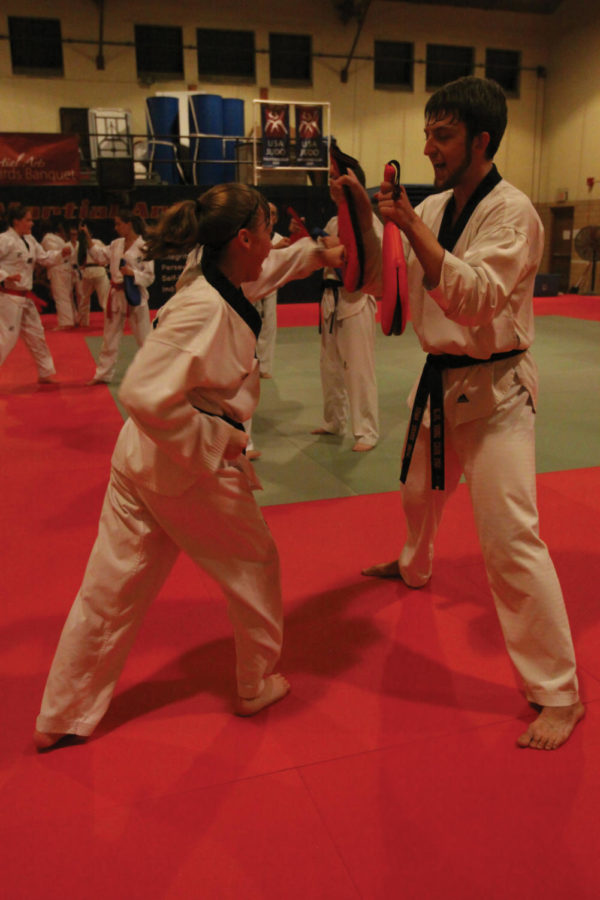Taekwondo offers more than self-defense
September 20, 2011
For some students at Iowa State, the dojang at the Forker Building has become a lot like a second home.
When martial arts first arrived on campus in 1963, they did so first in the form of judo, followed by hapkido and finally taekwondo in 1975, two years after the arrival of Grandmaster Yong Chin Pak.
Today, all three clubs are closely related and more than 300 students take part in workouts and tournaments throughout the year at a variety of skill levels, including beginner, intermediate and advanced.
Pak, who is a senior lecturer of kinesiology in addition to being the martial arts instructor, said taking part in the taekwondo club is another good opportunity to take time away from classes and work.
“The way I look at it, the students need to be relaxed,” Pak said. “All day long they are uptight, and somehow they need a break to rest.”
For the students taking part in the club, there is yet another advantage —working with the renowned Pak. In recent years, Pak was named as one of the 150 most influential taekwondo instructors in the world, and over the years, he has taught more than 35,000 people.
President of the ISU Taekwondo Club Lauren Pudenz, senior in animal science, said the club is a great opportunity to work closely with Pak.
“It’s really amazing,” Pudenz said. “You don’t quite realize how big of a deal Master Pak is until you’re away for a summer and pick up at a different club and they say, ‘Oh, you study under Master Pak? Well, show us what you do!'”
Another club member who took part in taekwondo at another school before arriving at Iowa State said Pak offers more than a workout.
“I came from another school where we didn’t have someone as renowned as Grandmaster Pak,” said Mark Stenerson, graduate student in genetics development and cell biology. “You can get an intense workout other places and anybody can teach you how to kick something, but it’s with Grandmaster Pak that you get knowledge behind it.”
Throughout the year, members of the club take part in tournaments. Iowa State hosts between three and four each year, and will host one this fall on Oct. 29 at Forker.
While tournaments and testing for various belts allow members to show off their technique, all members agreed that taekwondo is much more than self-defense. Taekwondo’s five tenets — courtesy, integrity, perseverance, self-control and indomitable spirits — are just as important.
“You’re expected, as you progress in rank, to better fit the tenets in your daily life and basically just be a better person,” Pudenz said.
For Pak, that’s the aspect he enjoys most.
“I like it because students are changing their lives,” Pak said. “[When they are done] they are good responsible people, good respectable people, and very friendly and upstanding citizens.”







